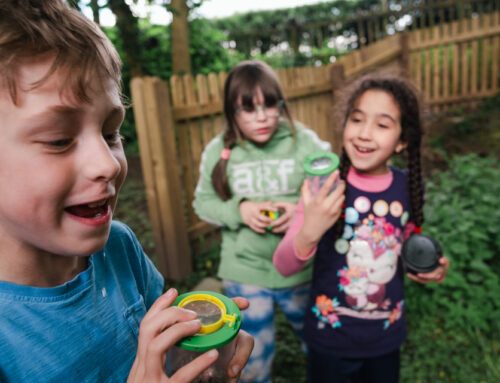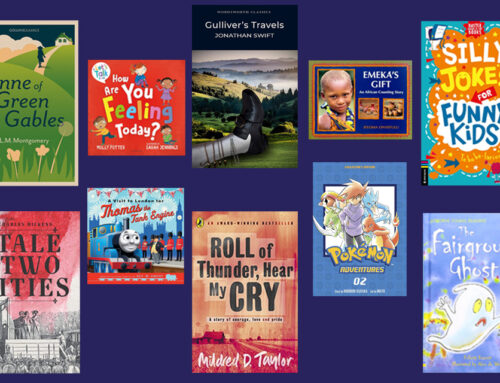In the past, parents and carers were told what was going to happen to their child in school. Then they were consulted. Then there was parental engagement (where parents and carers were even more involved in their child’s education at school). The latest buzzword is coproduction. This places children and young people, their parents and carers right at the centre of the decision-making process.
Coproduction places the onus on schools to develop clear policies and practice about how pupils, parents and carers will have a voice in making decisions. Whilst focusing on pupils with special educational needs and / or disabilities (SEND), this should also include children and young people with dual or multiple exceptionalities (DME) – that is, high learning potential (also known as giftedness / high ability / more able) combined with SEND, neurodiversity or mental health issues. It could also be argued that good practice in this area should lead to inclusive education for every pupil, including those with high learning potential.
Coproduction requires schools to treat parents and carers as equal partners. Whilst parents and carers may have no say (at least in the first instance) in how the school works with them, there are some things parents and carers of children with DME can do to ensure that they become equal partners in their child’s education at school. These include:
- Getting to know your child’s school – who you should communicate with and what is the best way to communicate with them.
- Understanding what the school should and could do to support your child with DME. This might mean getting to know the law as it relates to special educational needs and / or disabilities. It might mean finding out from other parents and carers about any good practice being done in other schools to support pupils with DME or it might mean suggesting what works successfully at home with your child to be adapted for use in school.
- Learning as much as you can about DME (and high learning potential and SEND), what it can look like at home and in the classroom and what can happen when it goes unidentified or has been misdiagnosed as something else. Sometimes a child or young person with DME, for lots of reasons, can present differently in different environments. It is essential that both you and the professional describe what you see and work together to build up a picture of the ‘whole’ child and how they can be supported in different environments.
- Parking your own views and past experiences at the school entrance and trying to view every situation as a chance to build trust and problem-solve positively. This is easier said than done. We are all influenced by our experiences, including our own past experiences – good and bad – of school. Often, by the time some parents and carers go into school to sort out a problem, getting involved is seen as a last resort and there can be a lot of frustration and anger leading to negative behaviour. Whilst being assertive does have a place, both parents, carers and professionals need to keep calm. Clarifying why something cannot be done, asking what can be done and problem solving positively without raising your voice, can all help.
- Working with your child to ensure that you are all on the same page about what you are looking for from the school or the outcome of a situation. Many children and young people with DME or with high learning potential have strong views about their own education and what they want. This can often be in conflict with your own views. Sorting this out with them before working with the school, so that you present a united front (including ironing out differences between couples and families) can be very powerful indeed.
- Recognising that the timescales and way schools and families tackle issues can be very different. In meetings, agree timescales and who will do what (ideally through having agreed notes from the meetings). This can help with managing everyone’s expectations and can be used as a record to hold individuals to account if things aren’t done.
- Encouraging honesty in relationships. Although it may not seem like it, being told that something you have asked for cannot be done (and ideally why) can prevent time and effort being wasted. Such honesty can then encourage professionals, parents, carers (and pupils) to work together to see if alternative approaches can be implemented which are acceptable. It can also save time waiting for interventions that will never happen and agonising over whether to move schools to somewhere where a child with DME can be better supported.
- Giving positive feedback where things go well (and constructive feedback where things could be better). Teachers are as human as the rest of us. Highlighting the interventions and activities that are working well can give confidence to professionals. It can also be used before giving constructive feedback, including alternative approaches to try or adaptations to what has been tried before. Identifying and supporting children with DME in the classroom is not easy. Most teachers and other professionals do not get training in this area and supporting them positively will give them the chance to learn from the expert: you!
- Getting involved with your child’s school. Whether it is as your child’s class rep, a member of the PTA, a school governor or equivalent, getting involved with your child’s school can help you to understand how things work in school on a practical level, to get to know professionals as individuals and to gain confidence forming relationships with them. Such involvement can help when you need to go into school to tackle trickier issues.
- Being positive with your child about the professionals who support them. This includes finding out from your child about why they might struggle with an individual who supports them and what the professional could do to get the best from your child. Such information can be used as part of your positive action plan with the school.
Developing equal partnerships with your child’s school, based on things like mutual trust, understanding, respect and honesty, can take time and can sometimes be fraught with misunderstandings, setbacks and difficulties along the way. It is important to focus on what is best for your child, to persist even when there are problems and never to give up. Remember, you are the expert in your child and when others see how to support them effectively, there will be nothing stopping them being the best that they can be.
About the author: Denise Yates has worked in education and training for over thirty-eight years to enable all individuals to maximise their potential. For ten years. Denise was CEO of Potential Plus UK which she left in 2017 to pursue her passion, which could be summarised as ‘hidden potential’: children and young people with DME, those with mental health problems and those who have been failed by the system, for whatever reason. Denise is currently a Board member of The Potential Trust, Nisai Education Trust and Potential In Me. She is also an adviser with Citizens Advice in her local area. In 2020, with Adam Boddison, she wrote The School Handbook for Dual and Multiple Exceptionality. Her second book, Parenting Dual Exceptional Children was published by Jessica Kingsley Publishers in March 2022. @DeniseYates_






